
Imago
Credits: Imago, NBA, Basketball Herren, USA Playoffs-Golden State Warriors at Los Angeles Lakers May 12, 2023 Los Angeles, California, USA Los Angeles Lakers guard Malik Beasley 5 warms up prior to game six of the 2023 NBA playoffs against the Golden State Warriors at Crypto.com Arena. Los Angeles Crypto.com Arena California USA, EDITORIAL USE ONLY PUBLICATIONxINxGERxSUIxAUTxONLY Copyright: xJaynexKamin-Onceax 20230512_lbm_aj4_075

Imago
Credits: Imago, NBA, Basketball Herren, USA Playoffs-Golden State Warriors at Los Angeles Lakers May 12, 2023 Los Angeles, California, USA Los Angeles Lakers guard Malik Beasley 5 warms up prior to game six of the 2023 NBA playoffs against the Golden State Warriors at Crypto.com Arena. Los Angeles Crypto.com Arena California USA, EDITORIAL USE ONLY PUBLICATIONxINxGERxSUIxAUTxONLY Copyright: xJaynexKamin-Onceax 20230512_lbm_aj4_075
Malik Beasley’s free agency saga has turned into one of the most fascinating late-summer NBA stories. Just a few weeks ago, the three-point sharpshooter looked locked into a three-year, $42 million contract with the Detroit Pistons. But when news of a federal gambling investigation surfaced, his market froze overnight. Now, cleared from that probe, Beasley is back on the board and suddenly one of the hottest names available. The Los Angeles Lakers, who still have one roster spot open, find themselves at the center of speculation: can they realistically bring Beasley back to L.A.?
Watch What’s Trending Now!
The timing of Beasley’s situation couldn’t be more dramatic. Prior to the news, no team wanted to touch him. Now, contenders like the New York Knicks and Cleveland Cavaliers have reportedly checked in, though they’re limited to veteran minimum deals.
The Detroit Pistons, where Beasley spent the last season, still hold the most financial leverage. Thanks to his non-Bird rights, they can offer him $7.2 million, double what the Lakers could ever put on the table. Other teams like the Brooklyn Nets ($15M in space), Bulls, Pacers, Heat, Thunder, Kings, and Wizards also have higher spending power, but most of them have already filled up their rosters.
ADVERTISEMENT
That leaves the Lakers in a strange position. They have the open roster slot Beasley needs, but not the cap flexibility to make it easy.
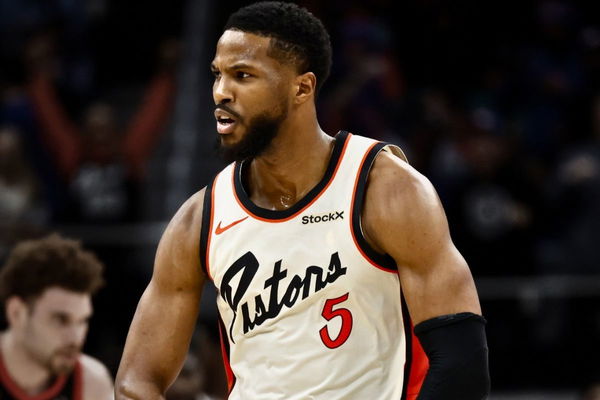
Imago
Nov 25, 2024; Detroit, Michigan, USA; Detroit Pistons guard Malik Beasley (5) reacts during the second half against the Toronto Raptors at Little Caesars Arena. Mandatory Credit: Rick Osentoski-Imagn Images
Let’s be clear: Malik Beasley is one of the best high-volume shooters in the league right now. In Detroit last season, he attempted 9.3 threes per game and hit them at a blistering 41.6% clip. That wasn’t a fluke either; he shot 41.3% from deep the year prior. Across those two years, Beasley ranked among the NBA’s elite in both volume and efficiency, giving him rare “gravity” that forces defenders to stay glued to him at all times.
ADVERTISEMENT
The Lakers, meanwhile, finished just 22nd in three-point percentage last season at 35.8%. Their stars, LeBron James and Luka Doncic, command double teams every possession, making shooters like Beasley invaluable. Rui Hachimura is efficient from deep (42%), but doesn’t shoot anywhere near the same volume. That’s why Beasley’s ability to take and make shots in bunches is so appealing. Beasley also finished the 2024-25 season behind Anthony Edwards all by just one three-pointer for the league most, as Ant made 320 to Malik’s 319.
Of course, the downside is his defense. At 6’4”, Beasley is not a lockdown perimeter defender and has historically been a liability on that end. For a Lakers team already concerned about defensive versatility, that’s not nothing. But when you’re talking about the 15th roster spot, finding a guy who can torch defenses for 16.3 points in 27.8 minutes per game may outweigh those concerns, as he did this past season.
ADVERTISEMENT
The Lakers’ cap roadblock for Malik Beasley
Here’s the catch: the Lakers can’t just sign Malik Beasley outright. They are hard capped at the first apron ($195.945M) and currently sit just $1.124M below it. The veteran minimum for Beasley, given his years of service, would be about $3.5M, more than the Lakers can legally fit. Without clearing salary, they’re stuck.
And this is where the real gymnastics begin. Technically, there are three possible ways the Lakers could create the room to bring Beasley back.
ADVERTISEMENT
The cleanest path would be to trade away rookie Dalton Knecht’s $4.01M contract to a team with space, like the Brooklyn Nets. That move would free up about $5.134M below the apron, enough to squeeze in Beasley at the vet minimum. The trade-off? Losing Knecht’s long-term upside.
Top Stories
Kobe Bryant’s Ex-Teammate Arrested Over DUI Charges
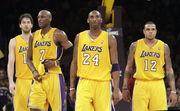
WNBA Fans Push Back on Natasha Cloud After Unrivaled Backup Plan Comments
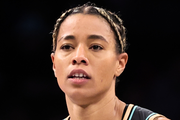
Kareem Abdul-Jabbar Speaks Out on Iran Protests
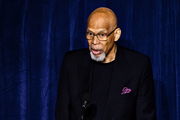
Visibly Upset LeBron James Blames NBA Refs After Creating “Uphill Battle” for Lakers
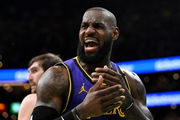
Warriors Dread Breaking Bad News to Stephen Curry as Trade Deadline Nears
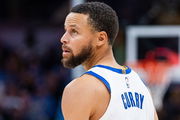
The 2024 lottery pick struggled badly in Summer League (10.3 PPG, 27.9% FG), but he also flashed with a 25-point outburst. At just 22 years old and under team control for multiple years, he represents cheap shooting depth with potential. Replacing him with Malik Beasley gives the Lakers a proven weapon now, but could cost them a valuable trade chip or future starter later.
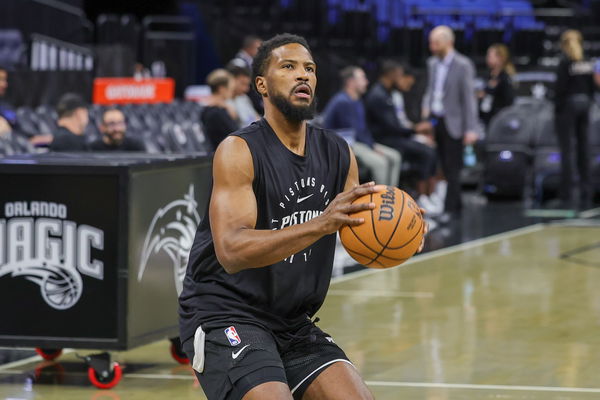
Imago
Nov 23, 2024; Orlando, Florida, USA; Detroit Pistons guard Malik Beasley warms up before the game against the Orlando Magic at Kia Center. Mandatory Credit: Mike Watters-Imagn Images
Another route would be dumping a mid-salary player like Gabe Vincent ($11.5M) or Maxi Kleber ($11M) into another team’s cap space. The Nets, again, are a logical landing spot. The Lakers could attach a second-round pick to sweeten the deal, freeing up the necessary space to sign Beasley.
ADVERTISEMENT
The downside here is two-fold. First, you’re losing rotation depth for essentially nothing. Second, you’re still limited to offering Beasley only the veteran minimum. That’s a heavy price to pay for a player the team declined a $16.5M option on just two years ago.
The third option is a sign-and-trade. The Pistons could re-sign Beasley for $7.2M and then ship him to L.A. in exchange for salary matching (say, Kleber or Vincent). A third team, like Brooklyn, could be roped in to absorb contracts, making the money work.
ADVERTISEMENT
On paper, it sounds simple. In reality, it’s messy and costly. Detroit would want assets in return, the Nets would demand compensation for helping, and the Lakers would still only be allowed to slot Beasley in at the vet minimum due to their hard cap restrictions. Given the complexity, this scenario feels unlikely.
So, can the Lakers bring back Malik Beasley? Technically, yes, but realistically no. All three paths involve sacrificing assets, either a young prospect like Knecht or valuable veterans, just to clear room for a player they can only sign at the minimum anyway.
The opportunity cost is huge. What if Knecht develops into the type of shooter Beasley already is, only on a cheap rookie deal? What if mid-season the Lakers need those assets to chase a bigger name on the trade market? Burning them now for Beasley could come back to haunt them.
ADVERTISEMENT
And don’t forget: the Lakers themselves declined Beasley’s team option when they had him in 2023. His defense was spotty, his shooting inconsistent, and he left fans frustrated. Since then, he’s rebuilt his value, but is he really the guy the Lakers want to bend over backwards for?
Malik Beasley would help the Lakers. His shooting is undeniable, his gravity would open the floor for LeBron and Luka, and he’s coming off two elite years from deep. But the math doesn’t work. Unless Beasley is willing to take the veteran minimum and the Lakers are willing to dump assets just to create the space for him, this reunion is far-fetched.
The more likely outcome? Beasley re-signs with Detroit on a shorter deal, rebuilds his market, and cashes in next summer. For the Lakers, the open roster spot may be better saved for the buyout market, when contracts prorate and flexibility returns.
ADVERTISEMENT
Still, the intrigue is real. Beasley’s name is back in headlines, and until he signs elsewhere, Lakers fans can dream of him raining threes in purple and gold once again.
ADVERTISEMENT
ADVERTISEMENT
ADVERTISEMENT

